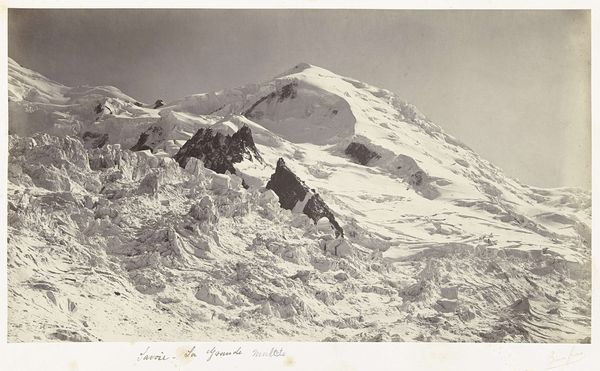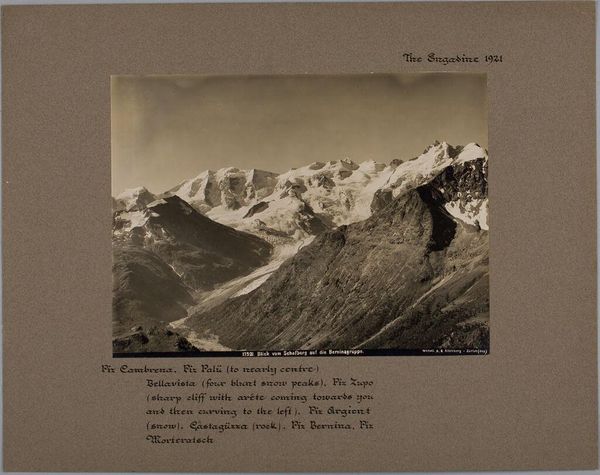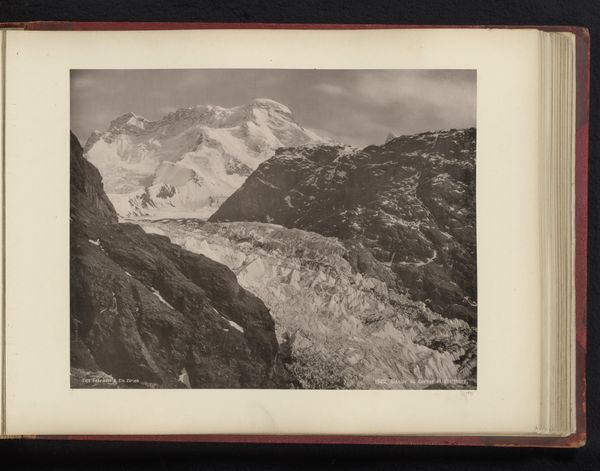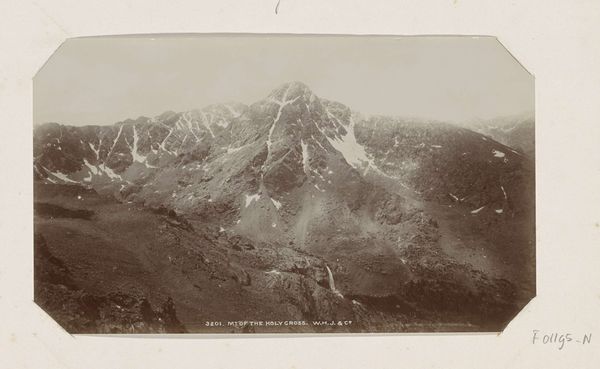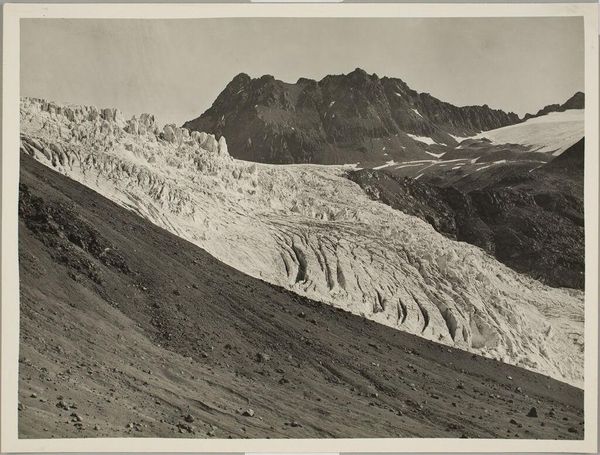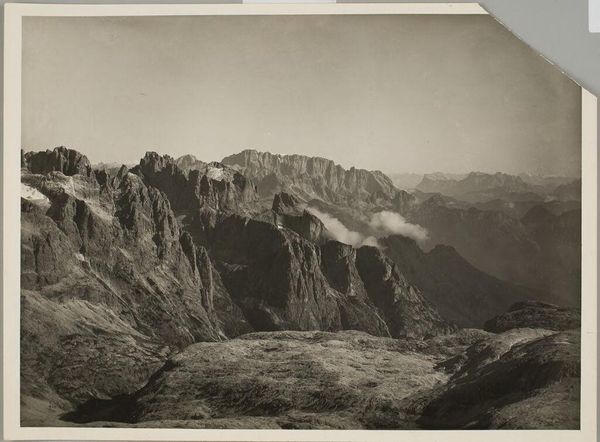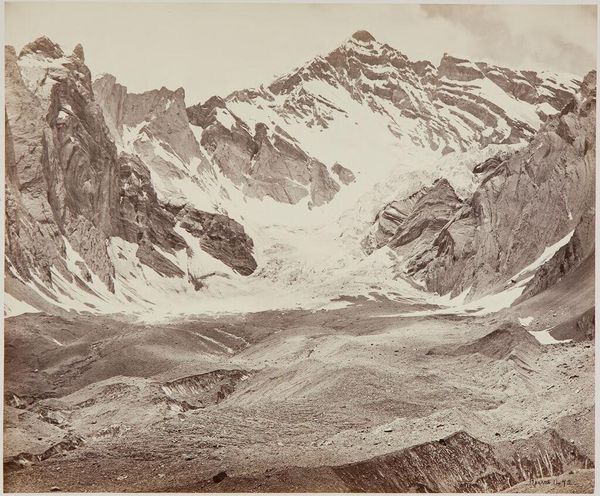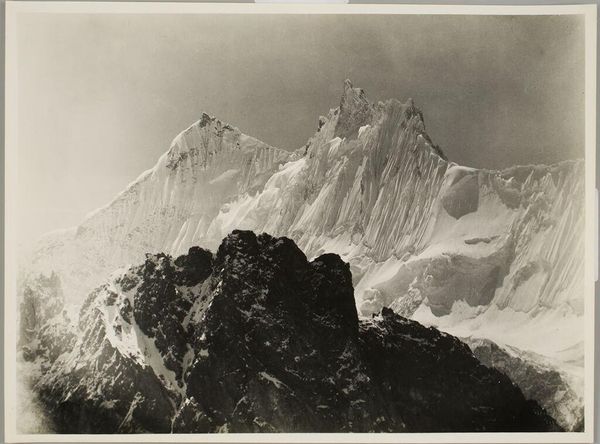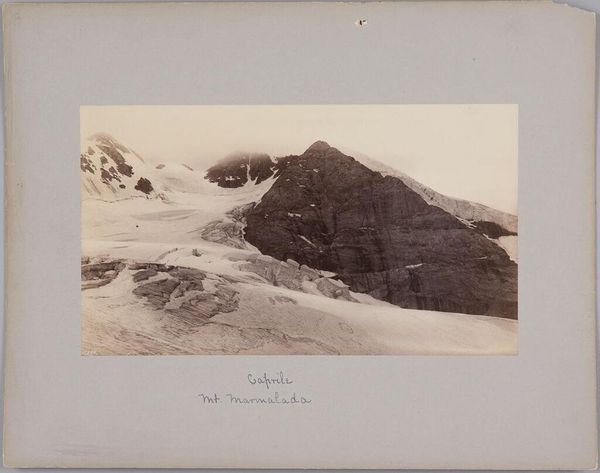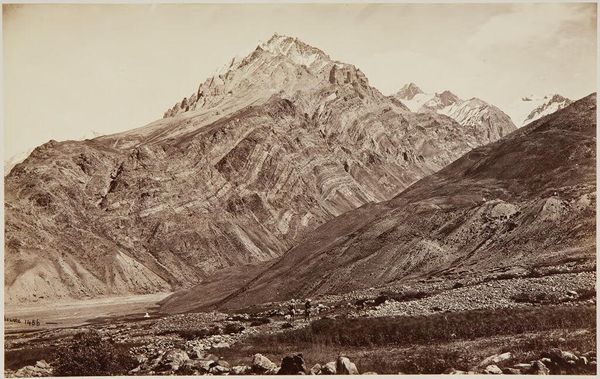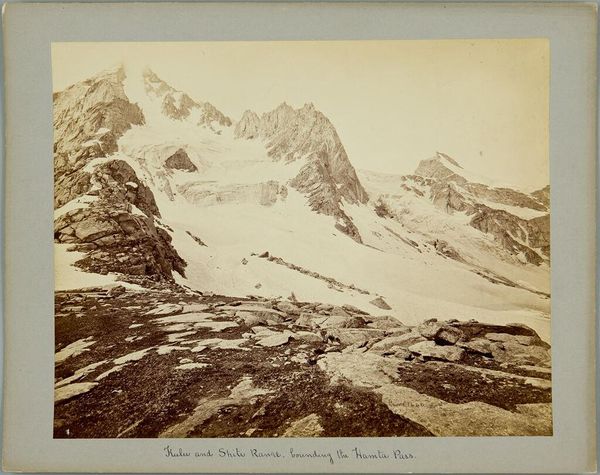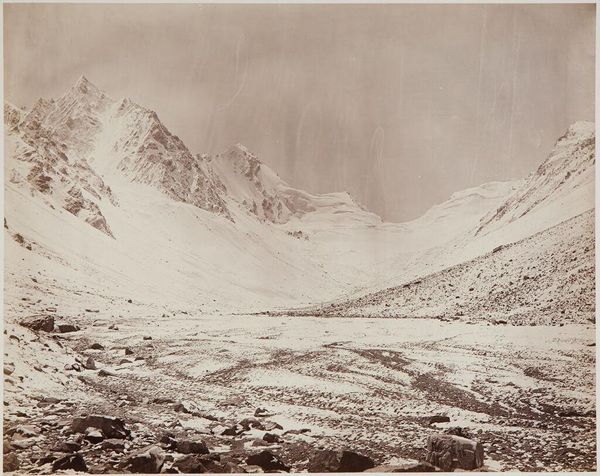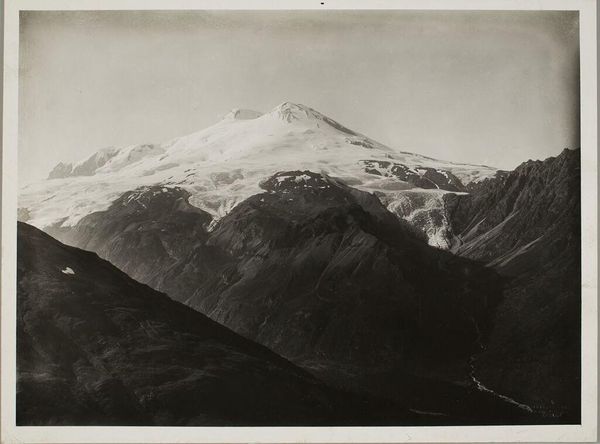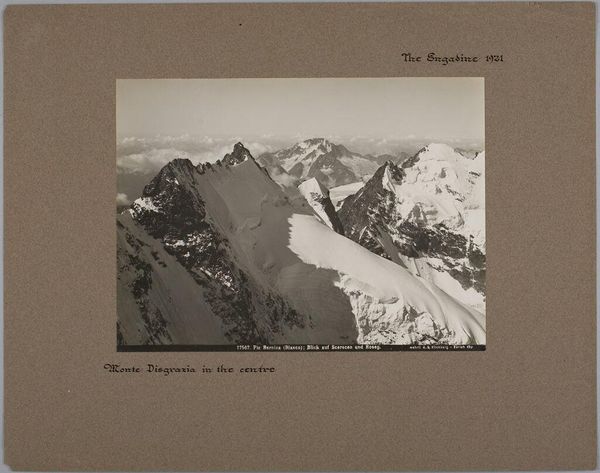
photography, albumen-print
#
aged paper
#
still-life-photography
#
natural tone
#
pictorialism
#
landscape
#
photography
#
naturalism
#
albumen-print
Dimensions: height 211 mm, width 267 mm
Copyright: Rijks Museum: Open Domain
Curator: Well, this is something! Gabler's "Gezicht op de Rhônegletsjer," likely taken just before 1899... It’s an albumen print, which gives it that rich, warm sepia tone. What grabs you first about it? Editor: The light. How the glacier appears almost luminous against the stark, rocky mountain. It has such a somber and monumental quality to it; it’s like witnessing a giant exhaling its last breath. There is something ominous about that lonely shelter carved right into the glacial ice. Curator: Right? There's this immediate sense of timelessness mixed with, oddly, incredible vulnerability. He’s captured such intricate detail. You can practically feel the cold radiating from the ice, see the tiny fissures in the rock. I bet he lugged some serious equipment up there for this shot. I imagine all the compositional choices like the sharp angling of the scene as crucial. Editor: Exactly. This was the tail end of the 19th century; environmental degradation wasn't a mainstream concept like it is now. Do you think he meant to offer a political comment? It seems to speak now to our present ecological crisis. I mean, given what we know about glacial recession, seeing this image now hits hard. Curator: Perhaps the politics of it emerge more clearly now, a consequence of time. But the Romantic undertones—nature's sublime power, and humankind's almost pathetic attempts to coexist with it—those are certainly present. That structure embedded in the glacier is like humanity staking its claim. It looks almost like a leper colony clinging to the face of a monster. Editor: It does raise some pertinent questions. It feels symbolic somehow... all of the sharp dark crags leading to this expanse of vulnerable whiteness, highlighting how our impact endangers delicate and powerful systems like glaciers. Curator: So, beyond just a scenic landscape, Gabler's photograph provokes a layered experience of time, presence, and absence, forcing us to face not just the glacier’s magnificence, but also our own precarious place in its story. Editor: And in a way, forces us to contemplate our own place in the history that this photograph participates in; how we look to our pasts with our presents. The past isn’t ever simply still; its photographic representations never are either.
Comments
No comments
Be the first to comment and join the conversation on the ultimate creative platform.
